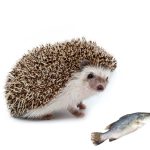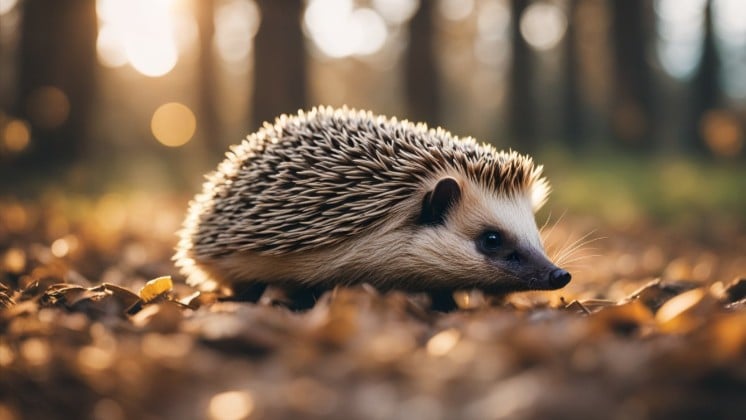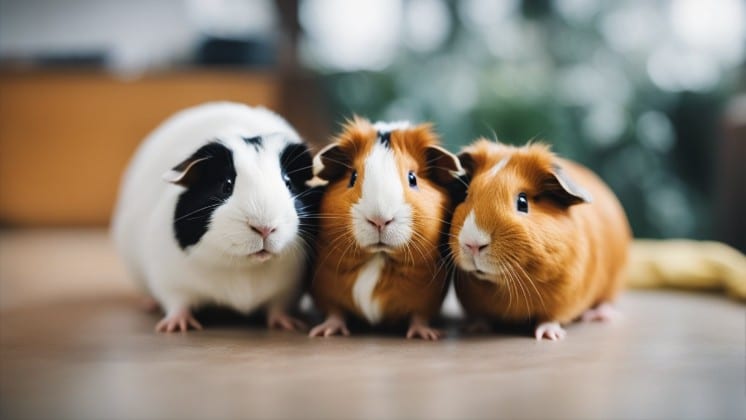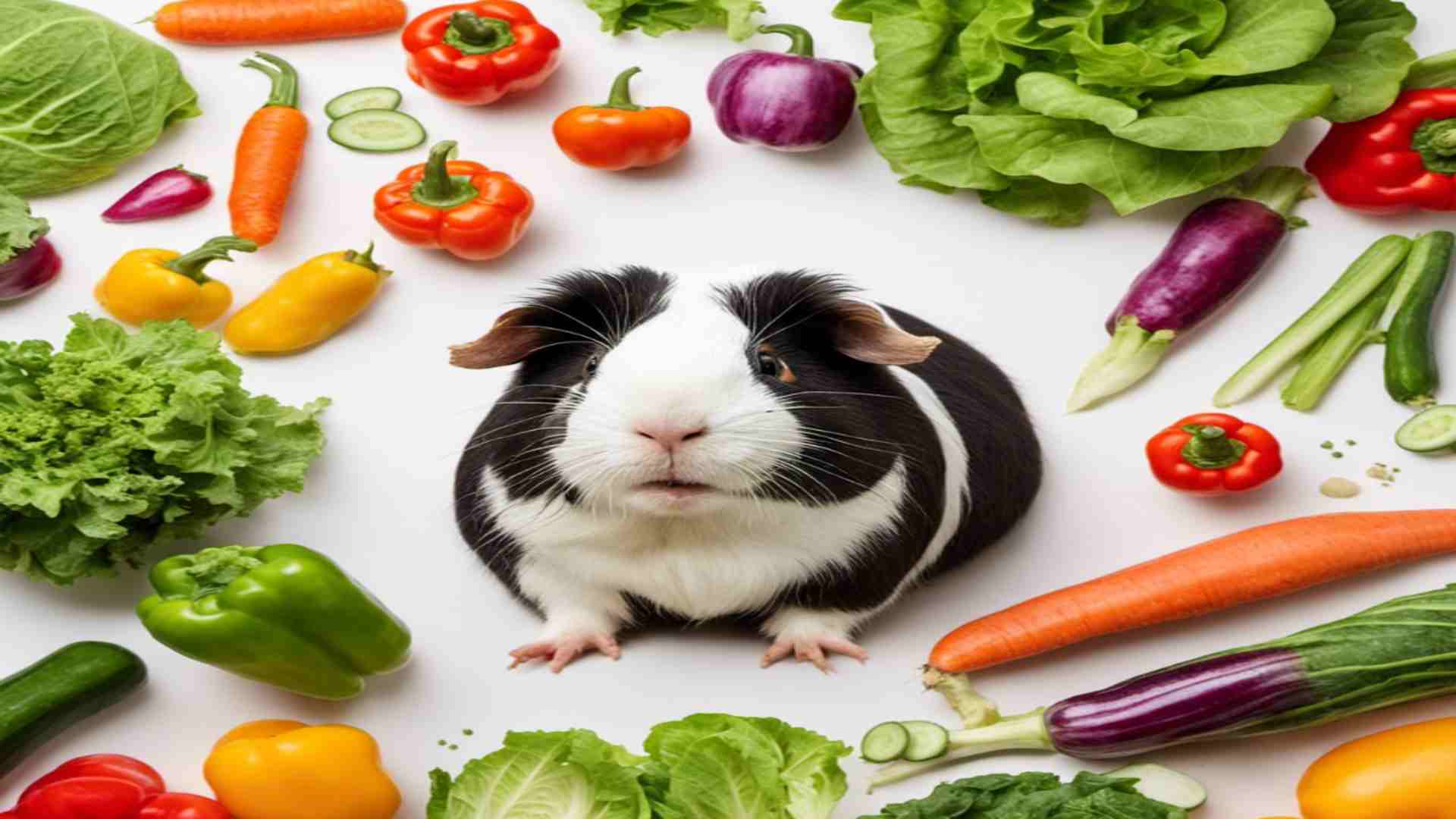Generally, chinchillas are known to be odor-free pets. However, sometimes they can create a smell similar to a fart, leading the owner to wonder why their chinchillas may be farting?
Chinchillas may be farting because of a variety of factors, including changes in diet, digestive issues, and stress. Farting is the body’s way of eliminating excess gas from the intestinal tract.
In this article, we’ll dive deep into the most common reasons, as well as if this is something you should be concerned about.
So, if you’re ready, let’s get started!
Do chinchillas Fart?
While many owners may believe their chinchillas are farting, note that stinky chinchillas are a myth. Typically, these creatures are known to be odor-free pets. Due to their inability to pass gas, these animals are more prone to bloat than anything.
Chinchillas, on the other hand, can emit a faint odor when they are scared, anxious, or unwell. This aroma is produced when your chinchilla presses on the little scent gland in its anal opening.
Why do chinchillas fart?
Chinchillas cannot fart, but they can generate an odor from the smell gland in their anal opening. When a chinchilla is anxious, terrified, or unwell, it will involuntarily push on this glad, causing it to roll out and produce the odor you’re smelling.
While this odor can be unpleasant for a few moments, this smell should not linger. If it does, make sure you take your chinchilla to the vet immediately to diagnose the source of the problem.
Why do chinchillas have scent glands?
In the wild, chinchillas are notorious for spraying urine when they feel threatened or under attack. When female chinchillas are scared or agitated, they use this spray defense. They accomplish this by standing on their hind legs, and the spray may reach 6 to 8 feet in the air.
The anal gland plays a role in this spraying action. For example, in males and females, the anal scent gland emits an odor.
Note: This approach is frequently used to warn your chinchilla’s predators that it is preparing to spray urine or attack.
What can cause a chinchilla to fart?
Stress
Overall, one of the most common reasons that a chinchilla will emit an odor is in response to being stressed or frightened.
Unfortunately, these tiny creatures are quite easy to startle, and this stress, if left untreated, can result in your chinchilla becoming sick and dying.
Therefore, if you believe your chinchilla may be emitting a smell because they are stressed, you must determine the source of the stress and eliminate it immediately.
Excitement
Chinchillas who are excited are also known to uncontrollably push on their anal glands and emit a tiny smell when running around playfully. This is one of the least concerning reasons why a chinchilla may be farting.
Protection
In the wild, chinchillas are known to emit an odor to warn any predators or threats that they are preparing to spray urine as a defensive attack. This behavior has also continued in domesticated animals of the species.
Therefore, if your chinchilla is emitting an odor from their scent gland as a response to protect itself, you must determine the threat immediately.
Note that some chinchillas can also display this behavior when getting used to their owners. If this is the case, be patient and take your time with the tiny creature.
Illness
Unfortunately, when a chinchilla becomes unwell or affected by a disease, it can also begin to exude foul odors. Overall, when it comes to discovering the cause of your chinchilla’s “farting,” this is one of the most significant problems.
If you have ruled out all other possibilities as to why your chinchilla is smelling, you must take them to the vet to establish if an illness causes the stench. After all, most conditions can and will harm your chinchilla’s general health if left untreated.
But what about hiccups? Did you know that chinchillas can get hiccups?
A spasm causes hiccups in the diaphragm, which is the muscle that separates the chest cavity from the abdomen. I have written a recent article where I explore in detail everything you need to know about chinchillas and hiccups.
Click the link to learn more.
How to help prevent chinchilla farts?
Chinchillas are prone to flatulence because of their diet. Their main food is hay, and since hay is very high in fiber, it can cause gas. There are a few things you can do to help prevent your chinchilla from farting too much.
That being said, if your chinchilla continues to fart, consider these aspects of your daily interaction with your chinchilla.
- Make sure that they’re eating good quality hay. Some hays are higher in fiber than others, so find hay lower in fiber if possible.
- Feed them smaller meals more often throughout the day instead of one large meal. This will help them digest their food better and produce less gas, and avoid sudden changes in their diet.
- Lastly, you can give them a digestive supplement to help with gas. There are many different supplements available, so talk to your vet about which one would be best for your chinchilla.
Also, keep in mind that chinchillas are very active and need to run around and play. If they’re not getting enough exercise, this can also lead to gas. So, make sure they have plenty of space to run and play and that they’re getting enough exercise every day.
You should also consider the following if none of the above has worked out for you.
Never startle your chinchilla
One of the best ways to avoid chinchilla “farts” is to avoid startling them. After all, these species are notorious for being easily scared.
As a result, when handling or approaching the cage, it is advisable to remain calm and make gradual, soft motions to avoid startling your chinchilla.
This will make your chinchillas feel more secure and less intimidated, placing less strain on their anal scent gland.
Consult your local vet
Overall, chinchillas are known to be practically odorless pets. Therefore, if you notice a persistent smell coming from your chinchilla, it is recommended you seek the advice of your local exotic vet immediately. Your vet will be able to run tests and determine if this odor is normal or the symptom of a more serious illness.
Summary
Before we move on to the conclusion, we’ve summarized this article into a short list of key points for you to remember:
- Make sure your chinchilla is eating good-quality hay.
- Feed them smaller meals more often throughout the day.
- Give them a digestive supplement to help with gas.
- Make sure they have plenty of space to run and play and get enough exercise daily.
- Avoid startling your chinchilla.
- Consult your local vet if you notice a persistent smell coming.
Final Thoughts
Chinchillas are typically thought of as odorless pets. However, occasionally they can produce a fragrance reminiscent of a fart, making the owner question whether their chinchillas are farting.
Overall, the fact that chinchillas are notorious for farting is a myth. They do, however, have a smell gland in their anal opening, just like dogs do. When a chinchilla is anxious or disturbed, it will push on this white gland, causing it to roll out and produce the odor you’re smelling.
Overall, being anxious or stressed out is one of the most frequent reasons why a chinchilla will emit an odor. Unfortunately, these little animals are highly susceptible to startling.
That’s why it is important you take the necessary steps to create a calm environment for your chinchilla. This includes handling them calmly and avoiding making sudden movements around their cage.
Unfortunately, when a chinchilla becomes ill, it can also create terrible odors. Therefore, if you are unsure why your chinchilla is ‘farting,’ you should take them to the vet to determine the cause immediately.
Want to learn more about chinchillas?
Ready to boost your knowledge to the next level? If so, check out the articles below:
- Do Chinchillas Get Along With Birds? (Explained)
- Do Chinchillas Mate For Life? 7 Facts You Should Know
- How to Prepare Apple Sticks for Chinchillas(Easy Tips)





